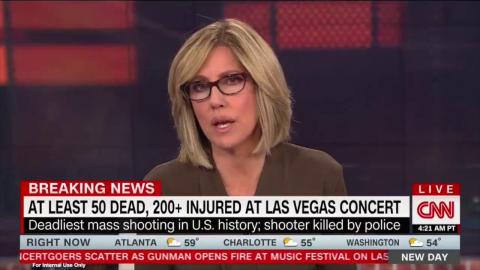The horrific Las Vegas shooting will undoubtedly be recorded in the history textbooks as one of the most tragic events in early 21st century history. Any loss of life for any reason is tragic, regardless of the cause.
Yet, the manner in which this occurred, the senselessness of it, and the apparent trend this type of killing has become leads us to question multiple aspects in our society. The most prevalent of these is, “should there be greater control?”
However, while we can all agree on a certain amount of regulation, it may not be the right question.
Increased gun regulations, which may indeed decrease the loss of the life in these instances, will not halt all loss of life.
Let us take an example to which we can all relate.
If we banned semi-automatic weapons, those who would legally or illegally obtain other forms of guns would still hold the ability to commit such acts. If we adhere to the belief that one life is as important as many, regulation is simply not the answer.
Hence the next question, is this a fundamental problem that can be attributed to our culture or society? Let us take media coverage of such events for example.
Every time these shootings occur the focus is on reporting the details of the event itself. This is not limited to the actual shooting, but the steps the shooter took to achieve the end, the type and number of guns, the timing, and a multitude of other meticulous details that led to what the shooter may have thought was success.
In other words, these are directions for others to potentially follow. The individual, who for any reason, would be more apt to commit such atrocities has now been told how to do so with success.
Of course, the job of the media is to report and the American public has a right to know what has happened. Yet, what is not prevalent in the media as well as in many other forums following such events, is an advocacy of peace.
Yes, we host politicians who state the immorality of it and that we should come together in the aftermath to support one another. How often do we host mental health experts with advice for those who feel an inexplicable need to commit such acts?
How often do we highlight religious leaders who would speak to the joy of peace?
Perhaps, more effective, when does the media seek out an individual who is willing to admit they could have been that person, once again for any reason, yet chose not to carry out such atrocities?
I often argue that human emotion and ideology are what many times moves individuals to action. Additionally, history has demonstrated the power of information and words, both spoken as well as written.
While ratings are undoubtedly higher when discussing the detailed events, at times the media is feeding the wrong emotions and ideology.
While one should not place the fault solely on the media, in any forum there must be a greater balance between discussing events and advocating peace. Perhaps when we truly begin to publicly promote a culture of self-regulation in our society, we will see this horrific trend decline.
